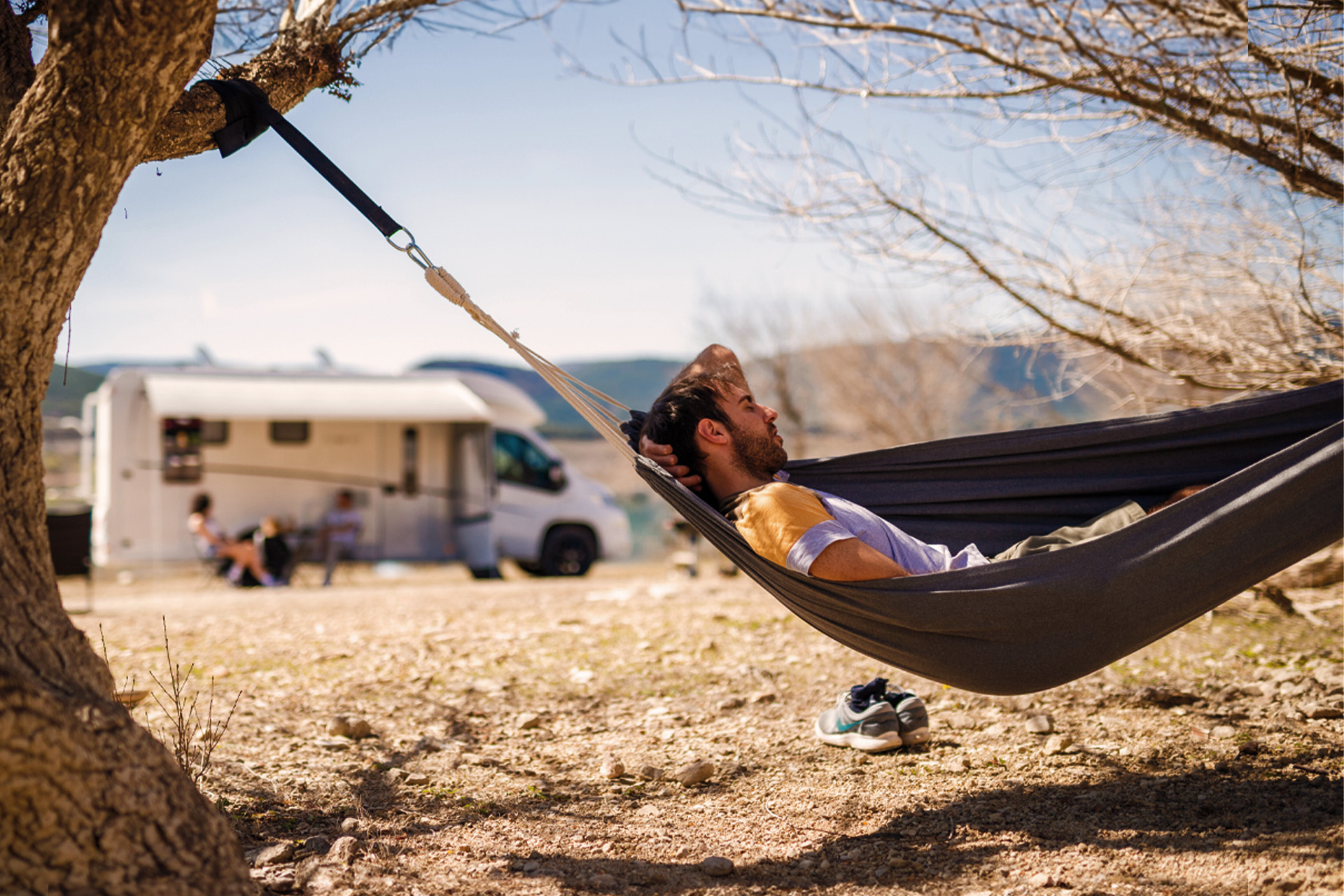Uno degli aspetti più apprezzati del viaggiare in camper è la possibilità di sostare liberamente (quasi) dove si vuole. Tuttavia, le regole per la sosta libera variano significativamente non solo tra Italia ed Europa, ma anche da città a città e da regione a regione.
Cerchiamo allora di capire come districarsi in mezzo a queste regolamentazioni per godersi un’esperienza di viaggio serena e, soprattutto, conforme alle leggi.
La differenza tra sosta libera e parcheggio
La differenza tra sosta libera e parcheggio per i camper è una distinzione importante nel mondo del campeggio itinerante ed è fondamentale capirne bene i termini per assicurarsi di rispettare le normative locali durante un viaggio.
La scelta, quindi, dipende da esigenze specifiche, dal tipo di esperienza che si desidera vivere e dalle normative del luogo in cui ci si trova, nel rispetto dell’ambiente e delle comunità che ci ospitano.
La sosta libera si riferisce alla possibilità di fermarsi temporaneamente con il camper in aree non specificamente designate per il campeggio o il parcheggio a lungo termine. Questa pratica è regolata da normative locali che possono variare notevolmente: in molti luoghi, è permessa purché non si estendano elementi del camper all’esterno (come tavoli, sedie, o tendalini) e si rimanga per un periodo limitato, tipicamente non oltre le 24 ore. L’intento è quello di consentire ai camperisti di riposare per poi continuare il viaggio, senza trasformare la sosta in un vero e proprio campeggio.
I parcheggi per i camper, invece, sono spazi specificamente designati per accogliere questi veicoli per periodi di tempo più lunghi.
Queste aree, spesso chiamate “aree di sosta attrezzate” o “aree di servizio per camper“, sono dotate di servizi dedicati come punti di scarico per acque grigie e nere, collegamenti elettrici e talvolta anche servizi igienici e docce. I parcheggi possono essere gratuiti o a pagamento e sono pensati per offrire ai camperisti un luogo sicuro e comodo dove fermarsi per una o più notti.
Sosta libera per camper in Italia e in Europa
La sosta libera con il camper in Italia è soggetta a regolamentazioni locali che possono variare notevolmente da una regione all’altra, o anche tra comuni diversi. In generale, la sosta libera è permessa dove non ci sono divieti specifici.
Il consiglio è quello di verificare sempre la segnaletica presente sul luogo per assicurarsi di evitare di creare disagi ai residenti o al traffico veicolare.
App, siti e guide specializzate (> link articolo “Pianificare un viaggio in camper”) possono aiutarci a trovare le aree di sosta o, in alternativa, parcheggi per camper autorizzati dalla normativa.
Le leggi sulla sosta libera in camper in Europa variano significativamente a seconda del Paese in cui ci si trova.
La Norvegia e la Svezia, ad esempio, sono molto liberali grazie al “Allemansrätten” (o diritto di accesso pubblico) che concede la facoltà ad ogni persona di godere della natura e di trarne vantaggio purché non si disturbi la vita privata e si rispetti l’ambiente.
Altri paesi, invece, come la Francia e la Germania, hanno regole più restrittive e aree designate in modo specifico per i camper. In Francia molti comuni offrono “aires de service”, aree di sosta dedicate ai camper, spesso con servizi di base, mentre in Germania la sosta è generalmente permessa solo per una notte.
Indipendentemente dalla destinazione, ci sono alcune buone pratiche che tutti i camperisti dovrebbero seguire per assicurare una convivenza armoniosa e sostenibile: non lasciare rifiuti e mantenere l’area pulita, evitare rumori e luci fastidiose (specialmente di notte) prestare attenzione alla sicurezza del nostro e degli altri veicoli ed evitare di danneggiare la flora e la fauna locali.
Sosta libera in camper sul mare
Le aree di sosta per camper vicino al mare sono particolarmente popolari durante i mesi estivi, quando famiglie, coppie e gruppi di amici cercano di combinare l’avventura del viaggio in camper con la bellezza del paesaggio marino.
Esistono aree di sosta libera vicino al mare, ma la disponibilità e le regole specifiche possono differire per garantire sia il rispetto per l’ambiente, sia la sicurezza e il comfort dei camperisti. In alcuni luoghi invece può essere addirittura vietata.
È essenziale quindi verificare le regole locali prima di sostare liberamente con un camper vicino al mare.
Nelle località costiere le normative possono essere più restrittive a causa della pressione turistica.
Questi luoghi sono spesso ambienti delicati con ecosistemi che possono essere facilmente disturbati, per questo le autorità locali impongono alcuni limiti alla sosta libera.
È importante essere consapevoli dell’impatto ambientale dei nostri comportamenti e seguire pratiche di campeggio responsabile come, ad esempio, scegliere di utilizzare prodotti ecocompatibili.
Nei luoghi di mare in cui sono presenti aree di sosta libera utilizzabili legalmente dai camperisti, queste sono spesso dotate di segnaletica chiara che indica dove la sosta è permessa e per quanto tempo si può rimanere.
La sosta libera in camper può arricchire significativamente l’esperienza di viaggio, offrendo spontaneità e un contatto più diretto con la natura e le comunità locali. Tuttavia, come abbiamo visto, è essenziale informarsi bene sulle leggi e le norme locali e praticare un turismo responsabile per garantire che questa libertà rimanga sostenibile nel tempo.
